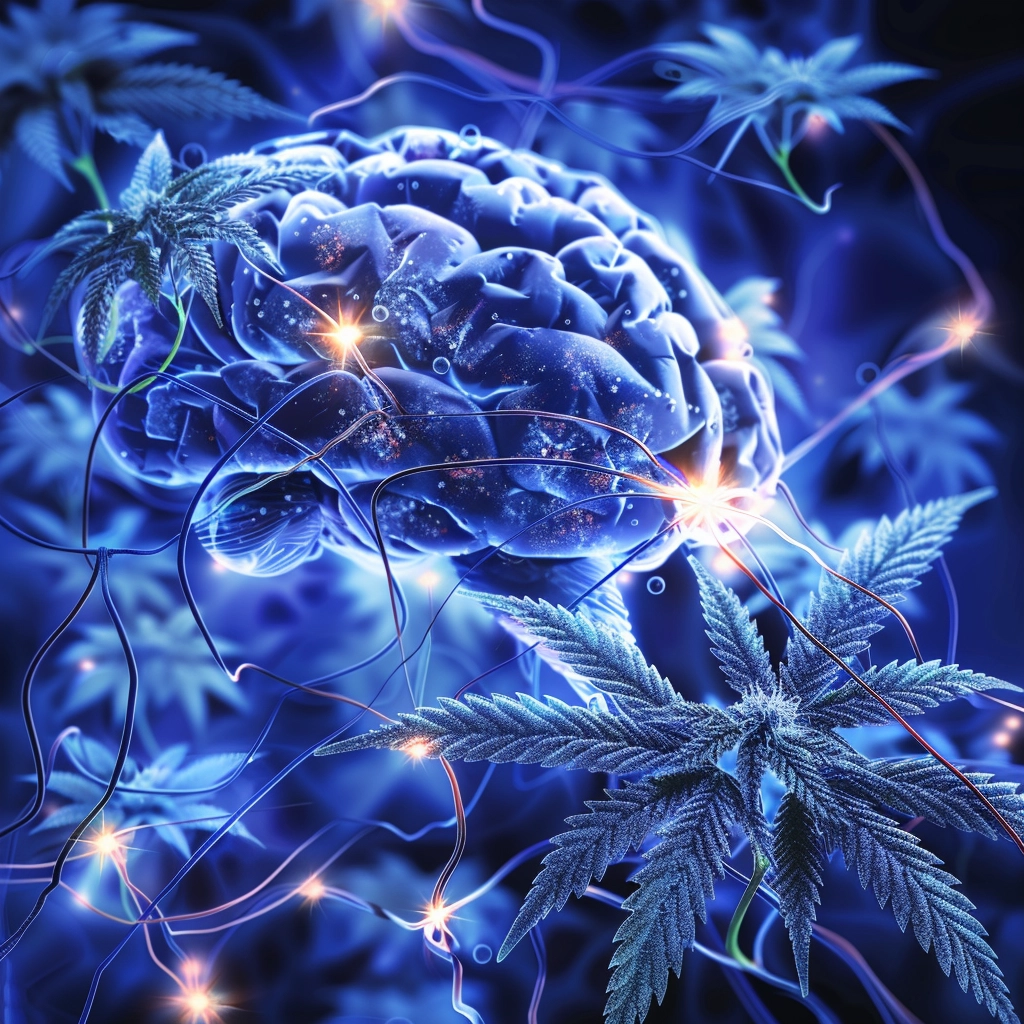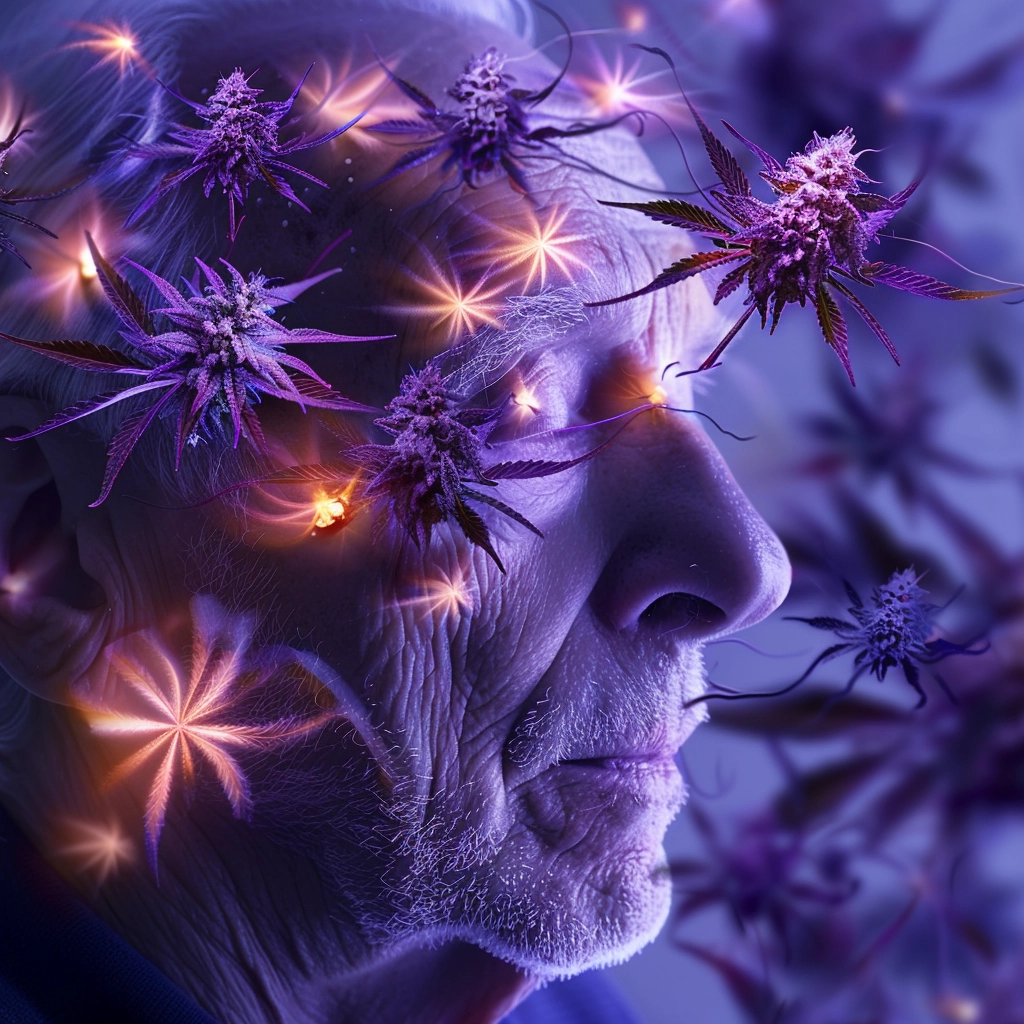In the vast and intricate landscape of medical science, the application of cannabis in treating neurological disorders represents a frontier teeming with potential and promise. Once veiled in stigma and controversy, cannabis has emerged as a beacon of hope, casting light on the shadowy challenges of neurological conditions such as epilepsy, multiple sclerosis (MS), Parkinson’s disease, and Alzheimer’s. This deep dive explores the transformative role of medical cannabis, unraveling the complex interplay between cannabinoids and the brain’s intricate machinery.


Table of Contents
ToggleA New Dawn in Neurological Therapeutics
Neurological disorders present a profound challenge due to their often debilitating symptoms and the limited efficacy of conventional treatments. In this context, medical cannabis offers not just symptom relief but a potential to alter disease trajectories, providing both patients and practitioners with new tools to combat these complex conditions.
Understanding Cannabinoids and the Brain
The human brain is rich in cannabinoid receptors, with the endocannabinoid system (ECS) playing a crucial role in maintaining neuronal health. Cannabinoids like THC (tetrahydrocannabinol) and CBD (cannabidiol) interact with this system, influencing neurotransmitter release and providing neuroprotective effects. This interaction is key to understanding how cannabis exerts its effects on neurological disorders.
Cannabis and Epilepsy: A Case Study in Success
Among the most striking applications of medical cannabis in neurology is its use in treating severe forms of epilepsy, such as Dravet syndrome and Lennox-Gastaut syndrome. The FDA approval of Epidiolex, a purified form of CBD, marks a significant milestone. Clinical trials have demonstrated that CBD can substantially reduce seizure frequency in these patients, offering relief where traditional anticonvulsants have failed.


Broadening Horizons: Cannabis in Multiple Sclerosis and Parkinson’s Disease
The versatility of cannabis extends to multiple sclerosis, where it alleviates symptoms like muscle spasms, pain, and tremors. The neuroprotective properties of cannabinoids may also slow disease progression, an area of active research and considerable interest.
In Parkinson’s disease, medical cannabis has shown promise in managing symptoms such as tremors, rigidity, and bradykinesia, as well as non-motor symptoms like sleep disturbances and anxiety. The potential for cannabinoids to confer neuroprotective effects could be revolutionary, potentially staving off the progressive degeneration characteristic of Parkinson’s.
Exploring Potential: Cannabis and Alzheimer’s Disease
Alzheimer’s disease, with its complex pathophysiology involving neurodegeneration and cognitive decline, is another area where cannabis has begun to shine. Preliminary studies suggest that cannabinoids may reduce inflammation and neuronal degradation in the brain. CBD’s antioxidant properties might also mitigate the oxidative stress associated with Alzheimer’s, providing a multi-faceted approach to symptom management and disease progression.


Navigating Challenges and Considerations
Despite the promising horizons, the journey of integrating cannabis into neurological therapeutics is fraught with challenges. Dosing accuracy, long-term effects, and a comprehensive understanding of the interactions between cannabinoids and existing drug therapies remain critical areas for ongoing research.
The Importance of Precision Medicine
Given the diversity of neurological conditions and individual patient responses, precision medicine becomes crucial in the application of medical cannabis. Tailoring cannabinoid profiles, dosages, and treatment regimens to individual needs will enhance efficacy and minimize side effects, promoting better outcomes across a spectrum of neurological disorders.
Legal and Regulatory Landscapes
Navigating the legal and regulatory frameworks that govern medical cannabis is essential for both practitioners and patients. These laws vary significantly across jurisdictions and influence everything from research opportunities to patient access, underscoring the need for advocacy and informed policymaking.
Looking Forward: The Future of Cannabis in Neurological Care
The future of cannabis in the treatment of neurological disorders is a tapestry woven from threads of hope, innovation, and rigorous scientific inquiry. As research deepens and societal attitudes evolve, the potential for cannabis to significantly impact the field of neurology grows. From clinical trials to the development of novel cannabinoid-based therapeutics, the path forward is one of exploration and promise.
In conclusion, the role of medical cannabis in neurological conditions offers a compelling glimpse into the future of neurology—a future where integrated, cannabinoid-based therapies stand alongside traditional treatments, offering renewed hope and profound relief to those navigating the complexities of neurological disorders.
Kannabu's Online Cannabis Educational Resources
Read Educational Online Guides and Articles to Learn About Cannabis
- Navigating the Green Path: CBD vs. THC in Medical Treatment
- The Aromatic Architects of Healing: The Role of Terpenes in Medical Cannabis
- Navigating the Green Frontier: Clinical Trials on Cannabis and Its Effects
- Charting the Green Path: Cannabis Dosing Guidelines for Medical Use
- The Endocannabinoid System: Nature’s Balancing Act in Human Health
- A Green Horizon: Cannabis as an Alternative to Opioids
- Navigating the Mind’s Garden: Cannabis and Mental Health Treatment
- Unlocking the Green Code: Exploring the Genetic Diversity and Pharmacological Promise of Cannabis
- Weaving Green into Gold: The Integration of Medical Cannabis into Traditional Medicine
- The Therapeutic Promise of Medical Cannabis: Exploring the Spectrum of Cannabinoids
- From Young to Old: The Compassionate Embrace of Medical Cannabis in Pediatric and Geriatric Care
- Green vs. Traditional: Navigating the Crossroads of Medical Cannabis and Conventional Therapies
- Beyond the Pain: The Comparative Effectiveness of Cannabis in Chronic Pain Management
- Unlocking Cannabis’s Secrets: The Journey Through Cannabinoid Pharmacokinetics and Pharmacodynamics
- Green Paws: Navigating the Frontier of Medical Cannabis in Veterinary Care
- Unlocking Relief: The Transformative Role of Medical Cannabis in Pain Management
- Harnessing Harmony: Medical Cannabis and the Battle Against Autoimmune Disorders
- Embracing the Night: How Medical Cannabis Transforms Sleep Management
- Turning the Tide: Cannabis as a Catalyst for Relief and Recovery in Nausea and Appetite Stimulation
- Illuminating the Neural Pathways: The Transformative Role of Medical Cannabis in Neurological Conditions
- Harnessing Harmony: Medical Cannabis and the Battle Against Autoimmune Disorders
- A Clearer View: Medical Cannabis in the Treatment of Glaucoma
- Breaking Boundaries: Cannabis and the New Frontier in Epilepsy and Seizure Control
- Revolutionizing Relief: Medical Cannabis in Cancer Symptom Management
- Navigating the Storm: Cannabis as a Beacon of Hope in Multiple Sclerosis Treatment
- Cannabis: A Natural Respite for Arthritis and Joint Pain
- Healing from Within: The Role of Medical Cannabis in Treating Gastrointestinal Disorders
- Healing Invisible Wounds: Cannabis in PTSD and Trauma Treatment
- Balancing the Mind: The Potential of Medical Cannabis in Bipolar Disorder and Mood Stabilization
- Illuminating the Mind: Cannabis in the Treatment of Alzheimer’s and Neurodegenerative Diseases

